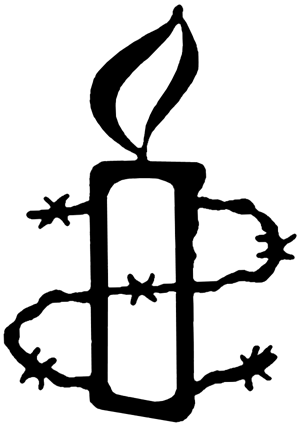
Afghanistan: No more empty promises in Paris
Ending impunity by implementing the Transitional Justice Action Plan, as explicitly endorsed by the Afghanistan Compact;
Reading time: (Number of words: )
The international community and the Afghan government have not met their pledge to provide the Afghan people, particularly women and girls, with better security, more responsive governance, and sustainable economic development, Amnesty International said today in a briefing paper issued ahead of the International Conference in Support of Afghanistan being held on 12 June in Paris.
The Paris conference will bring together representatives of 80 donors and organizations operating in Afghanistan to review the implementation of the 2006 Afghanistan Compact Agreement. Amnesty International found many of the benchmarks established for the Afghan government and its international supporters remain unmet.
"The biggest advance in Afghanistan after the fall of the Taliban is that many Afghans now dare to hope for a better future,” said Amnesty International.
“But six years after the international community helped bring President Hamid Karzai to power, Afghans face increasing insecurity, a burgeoning drug trade, lack of respect for rule of law and human rights, a weak and inept justice system, poor governance and endemic corruption."
The Afghanistan Compact, agreed at an international conference held in London 31 January - 1 February 2006, identified three major areas of development for Afghanistan’s future – security, governance (including rule of law and human rights) and economic development. It established benchmarks for performance in each area, to be met by the Afghan government as well as international donors.
The Afghan government has put forward a new US$50 billion Afghan National Development Strategy that focuses on strengthening the Afghan government so it can deliver better governance and improve respect for human rights, bolster security and increase economic development. While this new Afghanistan National Development Strategy is more realistic and detailed than its predecessors, it is still short of specific, credible benchmarks.
"The donors themselves admit the ‘serious funding gap’ between what they promised the Afghan people and what they have delivered,” said Amnesty International.
“What makes it worse is that the international community and the Afghan government have focused on short-term stability and security by relying on ostensibly pro-government warlords and corrupt officials, instead of prioritizing human rights and the rule of law.”
Amnesty International called on the Afghan government and its international supporters to:
- Improve the rule of law by expanding current training programmes for judges and lawyers, strengthening the independence of the judiciary, and re-establishing the de facto moratorium on the death penalty that remained in place until October 2007;
- Improve security for ordinary Afghans by creating a joint Afghan-international body to monitor the conduct of the notoriously inept and corrupt Afghan National Police, in particular by creating an oversight body that can respond to complaints about ANP abuses;
- Improve governance by establishing a mechanism to monitor and vet senior government appointments, as promised under the Afghanistan Compact;
- Ending impunity by implementing the Transitional Justice Action Plan, as explicitly endorsed by the Afghanistan Compact;
- Improve the participation of women in all Afghan governance institutions, as required under the Compact benchmark, and implement agreed legal and practical protections for women and girls in the judiciary and the criminal justice system;
- Strengthen freedom of expression by rejecting new restrictions included in a media bill now before President Karzai, and pardoning 23-year-old journalist Perwiz Kambakhsh, whose detention has had a strong, chilling effect on free speech.
Amnesty International called for better representation of Afghan civil society in monitoring and implementing the provisions of the Afghanistan Compact.
“The real voice of the Afghan people is not always heard at important policy meetings” said Amnesty International.
“The point of exercises like the Paris conference should be to support the Afghan people and their government’s efforts and ability to uphold their human rights.”
END/
Public Document
****************************************
For more information please call Amnesty International’s press office in London, UK, on +44 20 7413 5566 or email: press@amnesty.org
International Secretariat, Amnesty International, 1 Easton St., London WC1X 0DW, UK
Working to protect human rights worldwide

Poems for the Hazara
The Anthology of 125 Internationally Recognized Poets From 68 Countries Dedicated to the Hazara
Order Now








